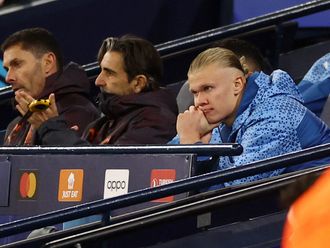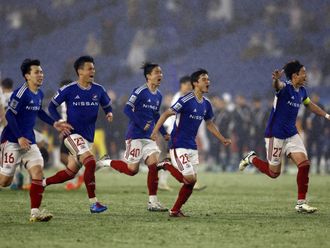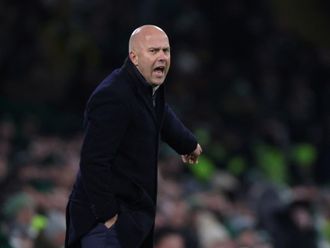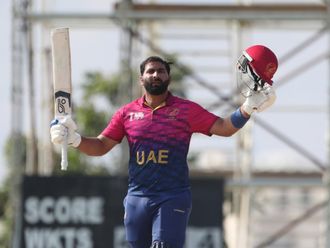Euro 2012 has surely been a dramatic rather than a distinguished tournament. One in which the Dutch, World Cup finalists in 2010, have dismally failed, losing all three games and now losing their manager, Bert van Marwijk, who jumped before he was pushed; but how far was he responsible?
Spain may have made their way to the final but, lacking a striker to succeed David Villa, who suffered a broken leg in that apology for a competition, the so-called Club World Cup, against an overwhelmed Santos, they have consistently been firing blanks; except against the feeble Irish when even Fernando Torres looked more than the usual parody of his old spectacular self.
Cristiano Ronaldo’s mysteriously bleak form against the Spaniards enabled them to win the all-Iberian contest against Portugal; and there still seems no rational explanation for the failure to use Ronaldo as a penalty taker in the shootout. Surely when one penalty had already been missed, it was imperative that Ronaldo, rather than the hapless Bruno Alves, should have been deployed.
True, Ronaldo provided some of the relatively few dazzling moments of this tournament: sublime trickery on the ball, superb right-footed finishing though, alas, never against Spain, while one still remembers an astonishing untypical earlier match moment when, all alone on the ball in the penalty box, he could do no better than shoot hopelessly wide.
The six midfielders used by Spain never looked a solution to their problems in attack, however adventurous Cesc Fabregas may have been when he came on. The intricate short passing can still look mesmerically impressive, but the truth of it is that this Barcelona style essentially lacks its crucial ingredient: the presence of the incomparable Argentinian, Lionel Messi.
And remember that against Croatia, only a couple of fine second-half saves by Iker Casillas kept Spain afloat. So much for the theory that they were able to nullify Portugal simply by keeping the ball. It didn’t work against Croatia, who surely had the outstanding playmaker of the tournament bar the remarkable Andrea Pirlo in Luka Modric.
Pirlo had a glorious season after being cast adrift, despite ten distinguished years there, by Milan. He has said that he was regenerated by his summer 2011 move to Juventus, whom he duly helped to the Campionato. Having helped Italy win the 2006 World Cup, and been so sorely missed by them in South Africa, in 2010 — injuries, a constant, alas, in his long career, enabled him to come on only after 56 minutes in Italy’s last, lost match against Slovenia.
England, with no playmaker of their own (and who knows when the one and only ‘schemer’ they have in young Jack Wilshere will be fit again?) could do little or nothing to contain him and his inspirational passing. Yet at least give Roy Hodgson’s mediocre team due credit for the fact that, however outplayed, the Italians couldn’t score against them. By sharp contrast, a supposedly superior Germany gave away two goals against Italy in the semi-final which Philipp Lahm, their own captain, lamented as deplorable. He himself bore responsibility for the second of them, playing goalscorer Mario Balotelli onside.
All credit to Italy’s manager, Cesare Prandelli, for having the courage to pick the two gifted, if unpredictable, mavericks in Balotelli and Antonio Cassano, whom Marcello Lippi, the former coach of Italy, left behind when he took the Italians to the ill-augured South African tournament. Cassano, the ‘bad boy from Bari’, has moved in Italy from club to club and had endless instants of indiscipline.
Having recovered last season from a stroke which immobilised him for months, he deployed his exceptional flair and skills in this European tournament. How cleverly he set up Balotelli’s first goal against the Germans from the left wing. It was hard to understand why he was substituted, almost immediately after he had, with similar skill, set up another good chance of a goal.












